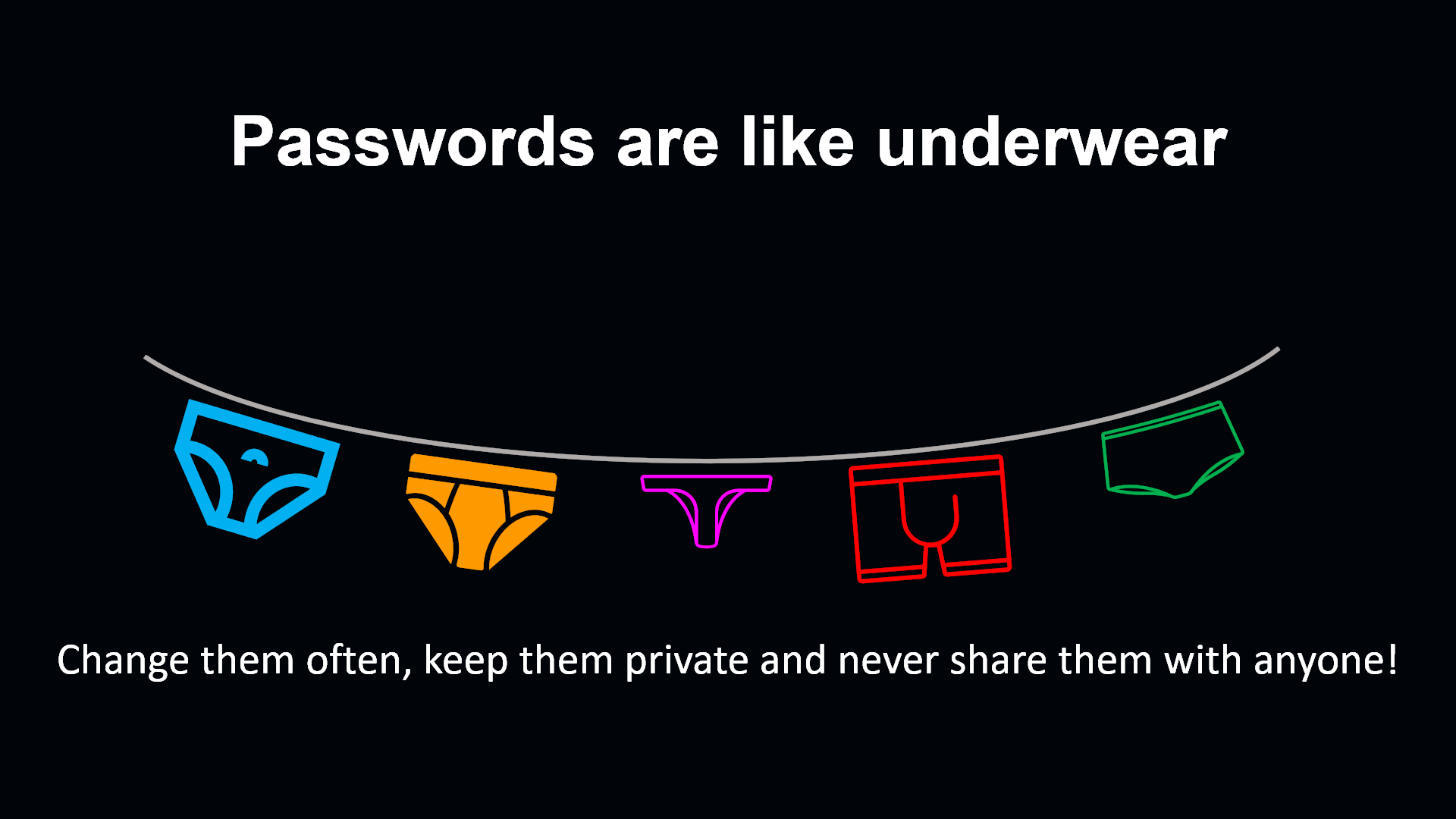Your underwear is private, so is your password
Today is International Password Day. A day where attention is asked to take a good look at your password. Or rather, to your passwords.
Your password is private
Your underwear is private and no one else needs to see it. The same goes for your passwords. Keep them to yourself and don’t share them with others. Don’t even think to type your password into your device if you are within plain sight of other people. They could observe you and catch your password. And do not write your password on a sticky note and leave it under your keyboard or even worse writing general passwords for development and testing on a whiteboard.
Make your password long
Hackers use multiple methods to access your accounts. For example, leaked passwords that have been cracked can be used to take over an account. Another way is for a hacker to manually investigate you and try to come up with passwords that may have been chosen. These passwords can contain letters, numbers and symbols. A more advanced method is to use a “brute force attack”. A computer program tries every possible combination of letters, numbers and symbols to crack your password as quickly as possible. Short passwords can be retrieved very quickly with this technique. The longer and more complex a password is, the longer this process takes.
Make your password a nonsens phrase
As mentioned earlier to make use of a long password is very good, but using long passwords that include random words and phrases are even better. If your letter combinations are not in the dictionary, your phrases are not in published literature, and none of it is grammatically correct, they will be harder to crack. Even characters that are sequential on a keyboard such as numbers in order or the widely used “qwerty” or “qazxsw” are not example which you should use.
Include uppercase and lowercase letters, numbers and symbols
Add to your passwords a combination of letters, symbols and numbers. Mix them well. For example you could substitute a three for the letter ‘E’, a zero for the letter ‘O’ or @ for the letter ‘A’. If your password is a phrase, consider capitalizing the first letter of each new word, which will be easier for you to remember.
Avoid using obvious personal information
By creating a password, don’t use personal information that is easily discoverable. Some information which easily can be identified are things like: names of relatives and even of the pets you own, your birthday, anniversary, address, city of birth, high school, and even your hobies or sports. These information will make it easier to guess your password. In addition, sometimes by creating a new account online there might some kind of security questions and answers which you have to select and answer. Since some information can be find easily or even easily guessed, select the ones that are not obvious to someone browsing your social media accounts.
Do not reuse passwords
Hackers like to use leaked passwords, because these are often reused on other websites with often the same username. This is easy for you to remember, but of course it makes it easy for a hacker to take over all your accounts. Use unique passwords for all accounts and services. Do not reuse them, preferably not even after years.
Start using a password manager
Password managers are applications that are offered both offline and online to generate and store strong passwords on your behalf. These passwords are stored per account in an encrypted, central location, which you can access with a master password. You should not lose this password, because then you will no longer have access to all accounts and passwords in the password manager. There are many services that are free to use, but there are also paid services that offer optional features such as syncing new passwords across multiple devices and sharing usage across a family as an example. It is also wise to use a strong and long password for the master password.
Change your password regulary
Although you change your underpants daily (or more often if they are dirty), you also change a password regularly. This does not have to be daily, weekly or monthly, but once in a while. There is no good benchmark when it comes to changing your password periodically. Once you have changed the password, do not use that password again for a very long time.
